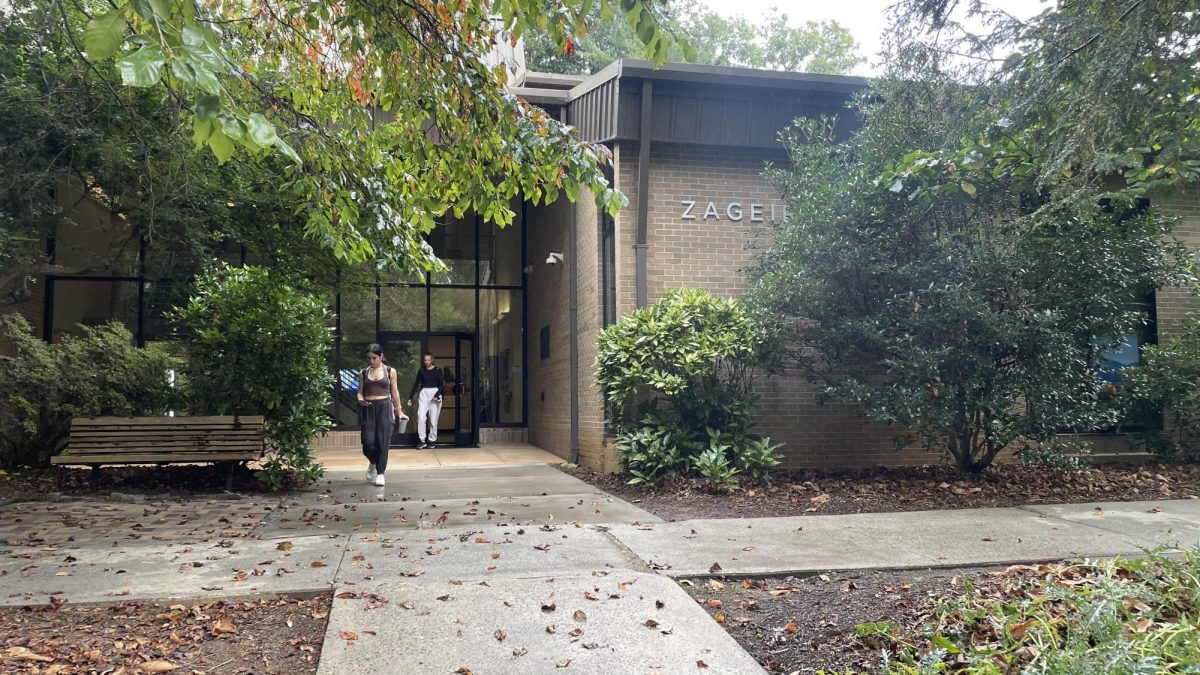Low voter turnout among young people is not just a pressing issue in the United States, It is also a significant concern across Europe, said a UNCA political science professor.
“Frequent moves, especially for college, create barriers that make it difficult for young people to navigate the voting process and register to vote,” said Ashley Moraguez, a 37-year-old political science faculty member at UNCA.
Young adults’ lives are so busy that they may not know where or how to register and what the requirements are in different areas. The lack of stability and clarity can discourage them from participating in elections.
“It’s really important to make the voting experience easier for people, regardless of their age,” Moraguez said.
According to Green European Journal, in Europe, the problem of youth disengagement from the voting process is similarly worrying, a large number of young people feel disconnected from the political process.
“Young people are the future of every country, and they should be the protagonists in the elections. They should care about the political future and try in every way to shape a political future suitable for them and for the generations to come,” said Isidora Meidani, a 20-year-old law student from Athens, Greece.
In Greece, the birthplace of democracy, a trend emerged during the European elections in June, nearly 59% of the population remained undecided and ultimately did not vote. The few people that did vote were mostly older citizens, young Greeks stayed largely silent throughout the elections showing a deeper issue with the political system according to the Kathimerini website.
“As the area of politics is an area that I find interesting, I voted in the European elections,” Meidani said.
The lack of knowledge about the European political scene and its importance for the smooth functioning of the entire European Union are the reasons for this effect as well as the inability to travel to another city and the inability to find time due to work.
“In Italy older people vote more than younger people because they don’t have enough knowledge and they get influenced by their parents’ political beliefs and leave them without their own opinions on voting,” Alessia Cunegatti, a 20-year-old international student-athlete at UNCA said.
According to Cunegatti the lack of political education in schools is a significant barrier when it comes to voting accessibility.
“I think we should have a lesson every week at schools so young people would have their own opinions and they would be more encouraged to vote,” Cunegatti said.
Italy’s 2022 elections were historic because it was the first time a woman won, with the majority of her supporters being elderly voters.
“As an international student, now with the elections, I see people being more into it and involved compared to Italy. People are talking more about the elections and It’s a big deal,” Cunegatti said.
At UNCA, efforts are being made to deal with the issue of young voters’ disengagement by creating opportunities to make voting more accessible and interesting for students.
“On campus, students are active and give us hope that young people genuinely care. They are passionate about voting but often struggle with how to get involved,” Moraguez said.
The university organizes events aimed to make the voting process easier, including on campus voting registration and voting. In addition, the university is dedicating a whole semester to civic themes, focusing on involving students in the election process and encouraging participation. On top of that, the university is working to reduce the barriers to voting and increase the representation of young people in the political process.
“We are working to involve young people and make voting as easy as possible by removing these obstacles,” Moraguez said. “It is crucial to convince others of the importance of voting and make sure that all students are aware of the power and responsibility that comes with voting.”



















